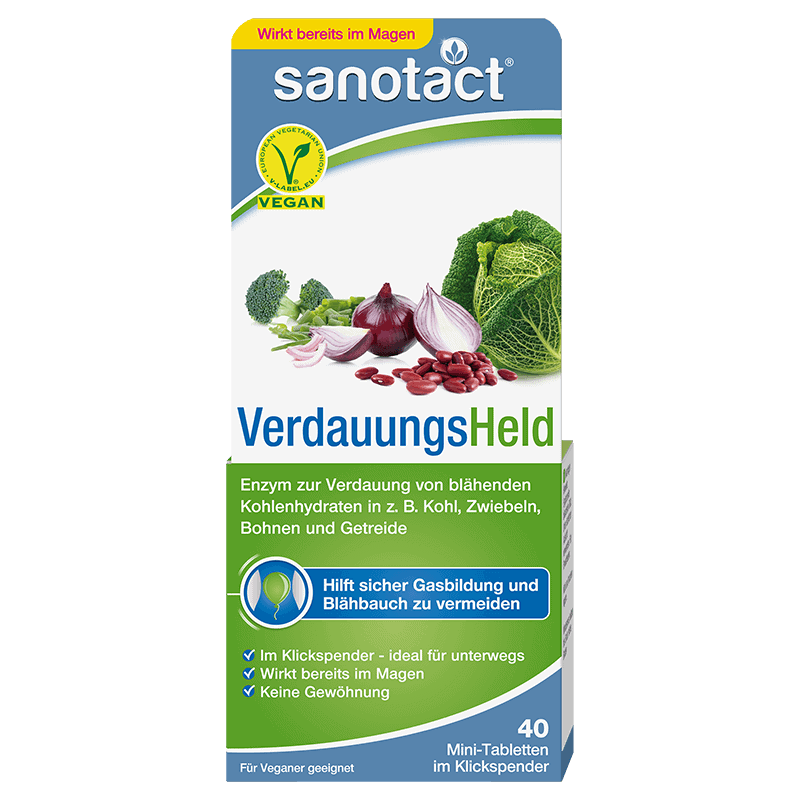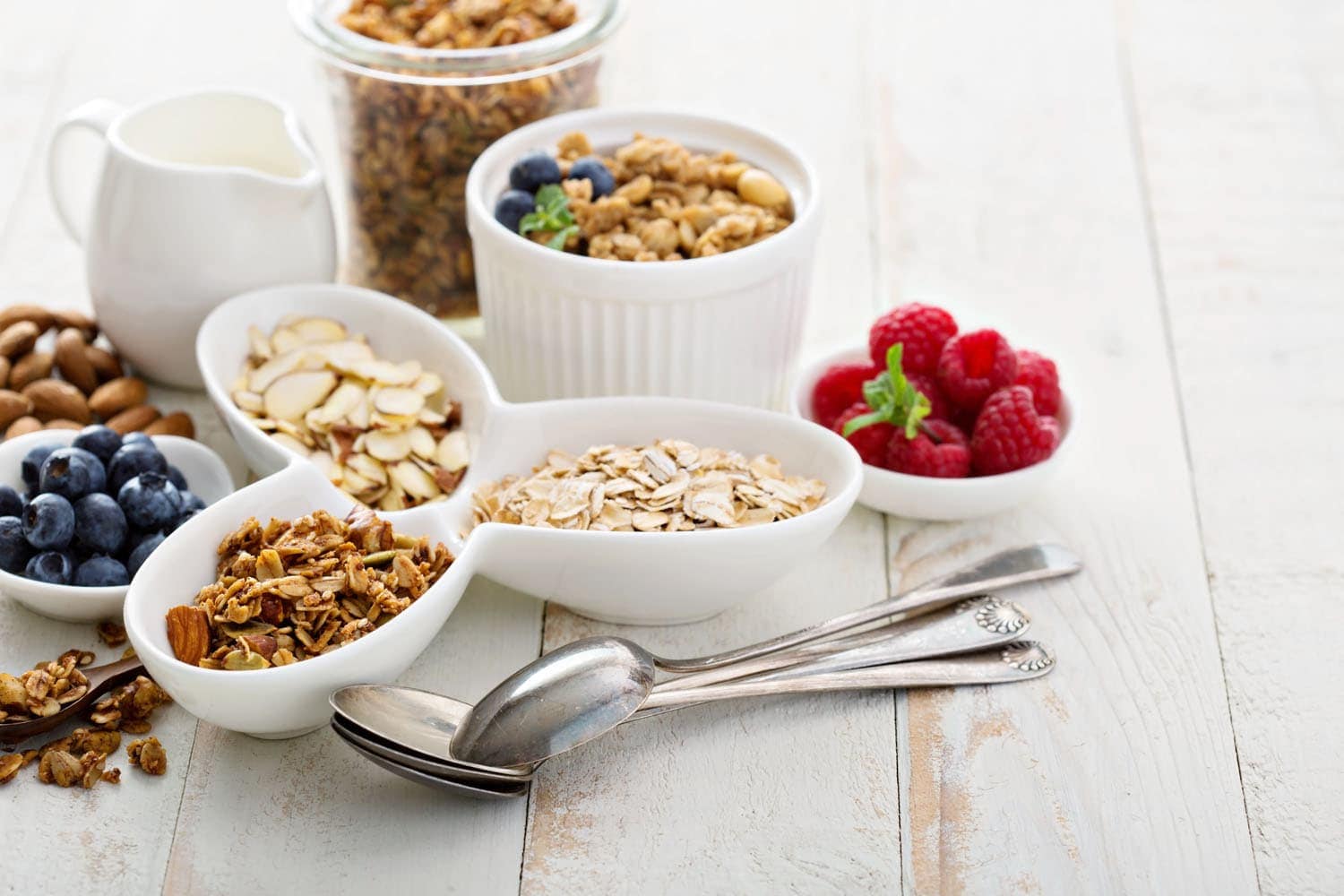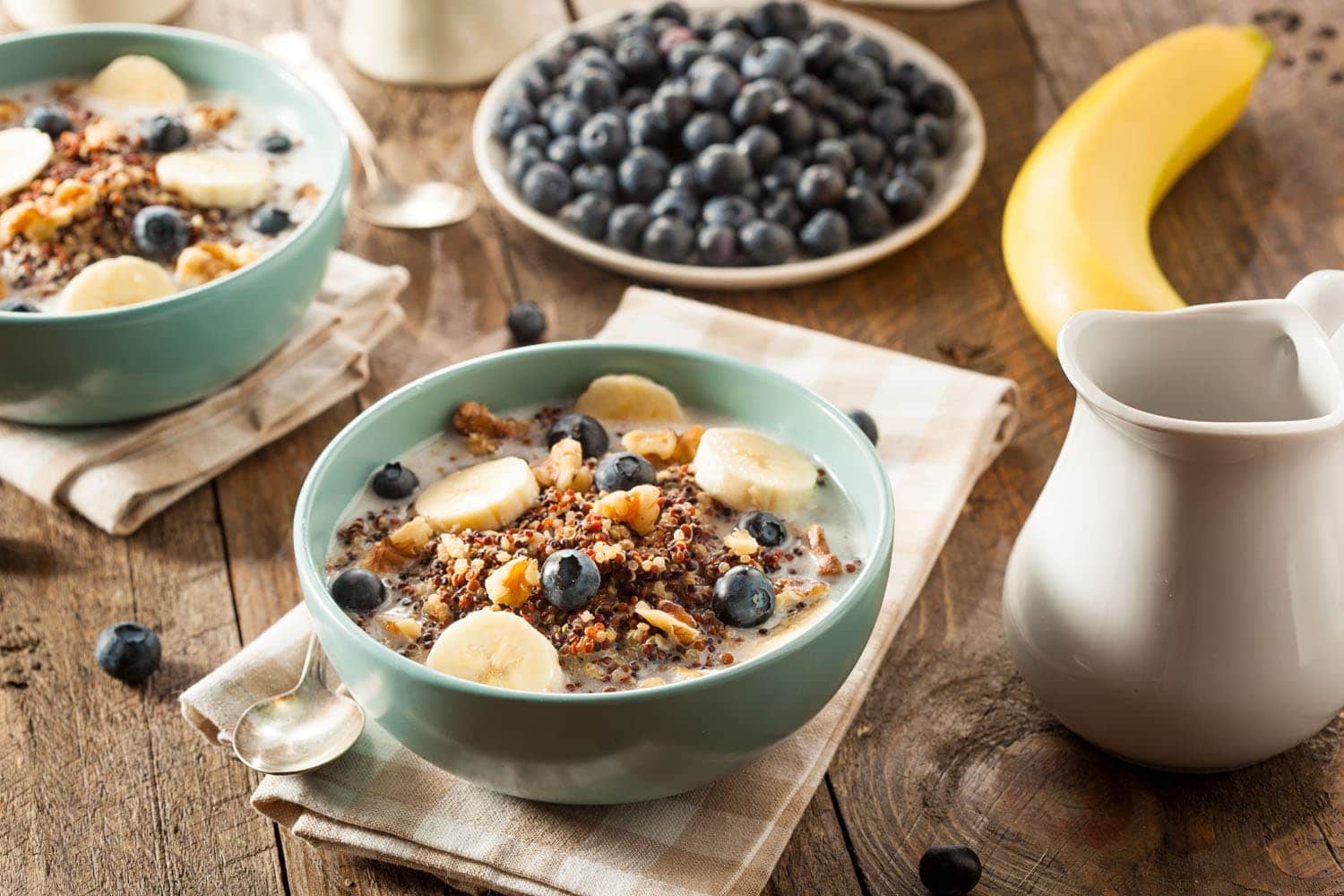Digestion and intolerances
When your gut feeling isn’t right
The digestive tract of an adult human being is up to nine metres long. Our food usually passes through it without us noticing. We only become aware of our digestive system when it causes problems. Find out what can cause these problems in our advice.
Imbalanced digestion
What could be the cause of digestion problems?
The symptoms are varied and the causes of gastrointestinal complaints can be just as varied. Inflammation, chronic diseases and stress can all throw the stomach and intestines out of balance.
Puzzling intestinal problems
People rarely think that a food intolerance can also be the trigger for the digestive complaints: Common intolerances involve fructose (fruit sugar) and lactose (milk sugar) and can also manifest themselves in flatulence, bloating and abdominal pain!
What causes flatulence?
Put simply, flatulence is nothing more than gas accumulation in the digestive tract. Small amounts of carbon dioxide are absorbed directly. Other gases, such as hydrogen and methane, collect in the intestine, where they lead to unpleasant consequences such as painful colic and draining intestines.
One reason for this can be an unbalanced diet: An excess of carbohydrates from white flour and sugar, for example, leads to a higher number of gas-forming bacteria in the intestine, which produce putrefactive gases with their fermentation processes. Sugar substitutes, such as those commonly found in light products, are also thought to cause flatulence, but large amounts of animal proteins can also trigger it.
If flatulence occurs as a result of eating cabbage or onions, enzyme preparations can help.
Constipation: Intestinal congestion
Constipation may be an issue if you empty your bowels less than three times a week and your stools are usually too solid. If the symptoms come on suddenly and are short-lived, this is called acute constipation. It can occur on holiday, for example triggered by unfamiliar food, lack of fluids and a change in daily schedule. However, it can also indicate an emergency such as a bowel obstruction or functional bowel paralysis. However, if the symptoms last longer than 3 months, it is probably chronic constipation.
An exact diagnosis should always be left to an experienced gastroenterologist. Depending on the cause, the treatment of constipation ranges from dietary changes, surgical or drug therapies to voiding aids and psychological methods. Taking laxatives over a long period of time can sometimes have dangerous consequences: The repetitive purging no longer challenges the intestinal muscles. The natural movement of the intestines is weakened and constipation is even more likely to occur. Therefore, laxatives should only be taken for a limited time and exactly as instructed by a doctor or pharmacist. A bowel-friendly lifestyle with plenty of exercise and a healthy diet can help prevent chronic bowel problems.
Food intolerances
When milk, fruit or vegetables cause discomfort
The trigger can often be clearly narrowed down through observation (e.g. with the help of a food diary). Consultation with your family doctor or a nutritionist is advisable in any case. If the complaints are food-related, then two possibilities come into consideration: an allergy or an intolerance. While an allergy is always an overreaction of the body’s own immune system, food intolerance usually involves the body not being able to break down certain substances or only being able to do so insufficiently.
What is the cause of my digestive problems?
The triggers for the complaints can come from a very wide range of foods. Cereals containing gluten in particular have recently come into focus in this context. Gluten is a protein that gives bread dough its consistency, for example. However, it can lead to chronic inflammation of the mucous membrane of the small intestine in people with a predisposition to this. This disease, called coeliac disease, is hereditary, but occurs relatively rarely (in less than 1% of the population in Germany). Whether gluten sensitivity can also exist without a corresponding genetic predisposition is still up for discussion.
About the same number of people are sensitive to histamine, a natural substance that plays an important role in allergic reactions and in the immune system. However, bacterially fermented foods such as salami, hard cheese, sauerkraut, red wine and beer also contain histamine and can trigger allergic reactions in people with histamine intolerance.
A lesser-known but widespread food intolerance, on the other hand, is oligosaccharide intolerance, which can cause symptoms after eating beans and cabbage, for example, due to indigestible carbohydrates. Similarly, many people cannot tolerate fruit and vegetables because they suffer from fructose intolerance. If you experience a rumbling stomach when eating dairy products, it is very likely that you are lactose intolerant.
Oligosaccharide intolerance - When vegetables really are a pain
Alpha-galactosidase is the key to carbohydrates
It is not advisable to stop eating healthy foods such as wholemeal bread, beans or even some types of fruit because they contain valuable nutrients and you should consume them regularly. For example, pulses are not only good sources of vital substances, but also indispensable sources of vegetable protein. In addition, the oligosaccharides contained in these foods, similar to dietary fibre, bind lots of liquid and support digestion. If necessary, preparations for the dietary treatment of oligosaccharide intolerance with alpha-galactosidase can facilitate the digestion of such “problematic” foods.
You can also read about digestive problems when eating fruit, vegetables or milk in our brochure: “When food causes discomfort…”

Help with flatulence, constipation and similar conditions
What can I do about my bowel problems?
Our digestion is influenced by various factors: by the condition of the intestinal mucosa, by stress, by medication and, last but not least, by diet. Disturbed digestion, which manifests itself in constipation or flatulence, is a serious signal from the body that something is wrong. However, it is not necessarily an indication of a serious illness. Often a change in eating habits and daily schedule is enough to get the unpleasant problems under control.
What can I do about flatulence?
Traditionally, anise, fennel and caraway are known to be natural remedies for flatulence in folk medicine. However, if the symptoms occur regularly and frequently after eating pulses or dairy products, food intolerances such as oligosaccharide intolerance or lactose intolerance should be ruled out by a doctor first.
In order not to have to do without these nutrient-rich foods, food supplements or dietary foods that can supply the body with the digestive enzymes it lacks (e.g. alpha-galactosidase or lactaseand support natural digestion) are offered as part of a balanced and mindful diet.
Help with constipation
Indeed, dietary fibres are important components of our daily diet: They bind water in the intestine and stimulate natural intestinal movement by swelling. Both of these things accelerate and promote the transport of intestinal contents, which can prevent constipation.
Build up your intestinal flora
These microorganisms need complex carbohydrates (also called prebiotics), such as the dietary fibres inulin and oligofructose, to grow. These polysaccharides (multiple sugars) are a natural component of many plant species. Unlike other types of sugar, however, they are not broken down by the human body, but migrate undigested to the large intestine, where they can serve as a food source for the natural intestinal flora.
Dietary fibre and digestion
Dietary fibres are indigestible food components that are mainly found in plant-based foods. They are an important part of a healthy diet and have important functions in digestion.
A distinction is made between water-soluble and non-soluble dietary fibres. Water-insoluble dietary fibres have a higher swelling capacity compared to water-soluble dietary fibres. They increase the stool volume and ensure that the intestinal contents are transported more quickly. Water-soluble dietary fibres, on the other hand, are fermented in the intestine by the intestinal flora. Substances are produced that serve as an energy-providing substrate for the intestinal mucosa, for example.
As part of a high-fibre diet, you should eat three slices of wholemeal bread, a portion of muesli and a portion of potatoes and vegetables per day. Special dietary supplements can additionally help to reach the guideline value for dietary fibre intake.
Products containing psyllium husks must first swell for a few minutes before you eat them. This generally sticky substance is often difficult to enjoy. An alternative is fibre powder made from inulin and acacia fibre. The powder dissolves completely in food and drinks during preparation and can be consumed directly.





